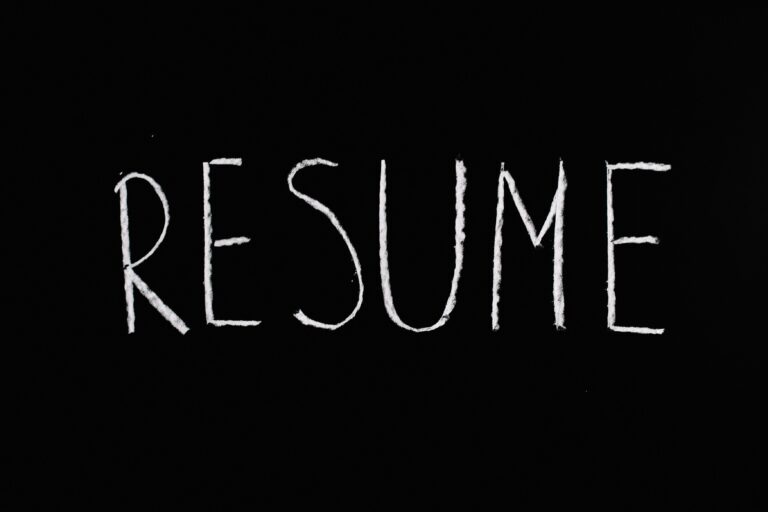The Main Reasons Why You Do Not Receive A Reply After Sending Dozens of Applications
Unfortunately, rejections are an inevitable aspect of the job search. With so many different companies looking for different qualities, you can’t be everything to everyone – and so every now and then you will receive a rejection (or, more likely, hear radio silence).
But if you’ve sent out 10 or 20 applications and haven’t received a response, it’s time to stop thinking of this as a series of coincidences and start thinking of it as a pattern. Most likely, there is a reason you haven’t received a response. The good news? It is often entirely within your power to fix the problem.
In the spirit of radical candor, here are some of the most common reasons why you are not hearing back from recruiters and hiring managers, and what you can do to develop a winning strategy.
1.You don’t think about where you are applying.
In their very first job search, most people take a “spray-and-pray” approach, meaning they apply to pretty much any job that catches their eye. While many quickly learn that this is not the best strategy, others never outgrow it – perhaps they got lucky with this tactic initially and mistakenly attributed their success to it. But this game plan will burn you out sooner rather than later, warns Roy Cohen, career coach and author of The Wall Street Professional’s Survival Guide.
“People who are job hunting often send out resumes indiscriminately. They’ve been programmed to believe that more is better,” Cohen says. “But if the fit isn’t perfect, the resume is ignored no matter how many are sent out – and even though it was wrong in the first place, it still feels like a rejection.”
Sure, you may be excited about a job, but that’s not reason enough to believe it’s a good fit – especially if you don’t have the relevant skills and experience needed to succeed.
“If you don’t meet at least the minimum qualifications for the job, your CV may be filtered out of the pool…. You don’t necessarily have to meet every single one of the qualifications listed in the job description, but you do need to show that you are a good fit for the job,” says Mary Grace Gardner, career strategist at The Young Professionista. The solution to this problem is simple: read job descriptions carefully and don’t apply if you think you’re not quite ready.
Conversely, you may not be the right fit for the job because you are overqualified. “If your experience far exceeds the requirements of the job, your CV may be pushed aside because recruiters assume they can’t afford to hire you,” Gardner explains.
If that’s the case, you have two options: Either “look for positions that require experience and skills that are either equal to or slightly higher than what you have,” or, if you are willing to accept a lower role, “make sure you highlight only the relevant parts of your skills and experience for the specific job you are applying for,” Gardner suggests.
2.Your CV needs a makeover
To paraphrase Occam’s razor, the simplest explanation is usually the best. Of course, it’s possible that your application slipped through the cracks or that the recruiter just doesn’t recognize a good CV when they see it, but the chances of this happening, again and again, are slim. If you’re constantly getting rejections, it’s time to take a close look at the most important document in your job search: Your CV.
There are many reasons why your CV might not be up to scratch. One of the most common reasons could be that you are not using the right keywords.
“CVs these days are scanned for keywords and phrases to demonstrate suitability. If a CV is generic and tries to cover as many areas as possible, it lacks the precision needed to show both qualifications and passion,” says Cohen.
To prove you’re a strong candidate, “highlight key experiences that fit the description of the job you’re applying for and be sure to use industry-specific keywords strategically in your CV and cover letter,” adds Gardner. Make sure you tailor this section for each position you apply for.
Other mistakes you might make in your CV: Typos, failure to show the impact of your actions, exaggerations, unexplained gaps in your CV, etc. If you want to avoid such mistakes, share your CV with others – especially recruiters, HR professionals, CV writers, or career coaches you feel comfortable approaching – and incorporate their feedback.
3.You’re not networking
You may have heard the phrase “It’s not what you know, it’s who you know”. While this may be a bit of an exaggeration – skills and experience do matter – it’s true that a referral can help you get your foot in the door.
“It’s no secret that the CVs that end up at the top of the pile are often the ones that have a warm connection in the form of a recommendation from a trusted colleague. For highly competitive jobs, there may be thousands of applicants and dozens or even hundreds of people who sound just like you on an application,” says Gardner. “To stand out from the crowd, ask your network of family, friends, and colleagues if they know anyone at the company you’re applying to. If so, ask if they would be willing to recommend you.”
But don’t worry – you’re not completely out of luck if you don’t already know someone at the company.
“Applying online is great, but you also need to reach out to the recruiter or other contacts in the company,” says career coach Angela Copeland. “Taking the time to do something extra will ensure you get noticed.”
A more subtle but nonetheless effective way to secure a job is to ask for an informational interview with someone at the company.
“If the informational interview goes well, you can tactfully mention that you applied to the company and ask if they have any recommendations for the job…. Having someone with influence vouch for you can dramatically increase your chances of hearing from a recruiter,” Gardner explains.
Outside of these activities, “focus on building your LinkedIn network or the social network of choice. The goal is to make key contacts at the companies you want,” explains Cohen. “Embrace the company by reaching out to multiple points of contact and entry. This way, you’ll hear about job openings and potential opportunities, some of which may never reach the posting stage. Plus, these are the people who will act as your advocates; many companies even offer incentives for introducing outstanding candidates who eventually get hired.”
4.The company has dropped the ball
As mentioned earlier, if you keep getting rejections, it’s probably a sign that you’re doing something wrong. But if it’s only a few companies you’re not hearing back from, it’s possible that there are things going on behind the scenes that you’re not privy to.
“Companies may not fill every role in the way we imagine as job seekers. For example, they may have an internal candidate who is already pre-selected, but advertise the job anyway,” says Copeland. In such cases, it may be “standard company policy to keep a position open for a period of time” even if they already know they have a strong internal candidate, Cohen adds.
In other cases, “they may put a position on hold because of budget constraints or because the reporting structure has changed. Companies rarely communicate these details to the job seeker,” says Copeland. Still other times, it may be that they are “just slow in processing applications. They’re filling a lot of positions at once, with a lot of moving parts.”
What’s the most important thing to do when you encounter such obstacles? “Don’t give up hope,” says Copeland. Once you’ve made sure you’re doing everything right, “keep applying, and eventually you’ll get answers.”
Looking to make a career change or start a new job? Try FindMyJob.lk today to find the perfect job you dream of.







